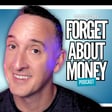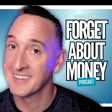
⚖️ Early Retirement Lessons: Life Insights with Ryan Connell 🧘
Watch this Episode on YouTube and Subscribe
💬 David Baughier sits down with Ryan Connell, an early retiree with a knack for aligning values with finances. Ryan talks about his leap from real estate to passive index funds. His story showcases the magic of intentional living and mindful spending. 🌟
💡 Ryan introduces the concept of negative time, highlighting the importance of creating space in our lives for genuine freedom. He shares practical tips to help you balance your life and reduce stress. Turns out, doing less can actually mean living more! 🕰️
🌸 Ryan also explores impermanence and the Japanese idea of ikigai. By accepting life's fleeting nature, he finds deeper satisfaction and purpose. He encourages aligning your passions with your daily activities, so every moment is filled with intention and joy. Who knew philosophy could be this fun? 🔍
🔑 Key Topics Discussed:
⇨ Ryan’s transition from real estate to passive index funds
⇨ Understanding and applying the concept of "enough"
⇨ Strategies for creating "negative time" in daily life
⇨ Embracing impermanence and the evolving nature of purpose
⇨ Finding your ikigai and living a fulfilled, purposeful life
🔗 Ryan's Links:
📺 CampFI YouTube: Life Lessons From The First Year of Early Retirement
📚 Your Money or Your Life Book
🔗 David's Links:
🍏 Forget About Money on Apple Podcast
🎧 Forget About Money on Spotify
🕒 Timestamps/Chapters:
0:00 - 🚀 Introduction to Ryan Connell's Early Retirement Insights
4:16 - 💡 Discovering the Concept of Enough with Justin's Root of Good Blog
6:57 - 👨👩👧👦 Sharing Early Retirement Plans with Family and Friends
10:01 - 🏡 Transitioning from Real Estate to Passive Index Funds
14:26 - 📈 Evaluating Progress Towards Financial Independence
17:55 - 🎓 Imparting Financial Wisdom to Young Adults
19:06 - 📰 Navigating Financial News and Media Influence
20:10 - 🕰️ Exploring Concepts of Negative Time, Impermanence, and Ikigai
24:02 - 🧘 Embracing Negative Time
26:56 - 🗓️ Planning for Annual Time
32:18 - 🌸 Embracing Impermanence
37:56 - 🔍 Unveiling Ikigai Concept
44:07 - ⚖️ Balancing Transient Nature
👍 Like, Share, and Subscribe:
If you enjoyed this episode, please like, share, and subscribe! Your support helps us bring more valuable content to you.
#️⃣ Hashtags:
#EarlyRetirement #FinancialIndependence #MeaningfulLiving #FIREMovement #NegativeTime #Impermanence #Ikigai #PassiveIncome #IntentionalLiving #PersonalFinance

